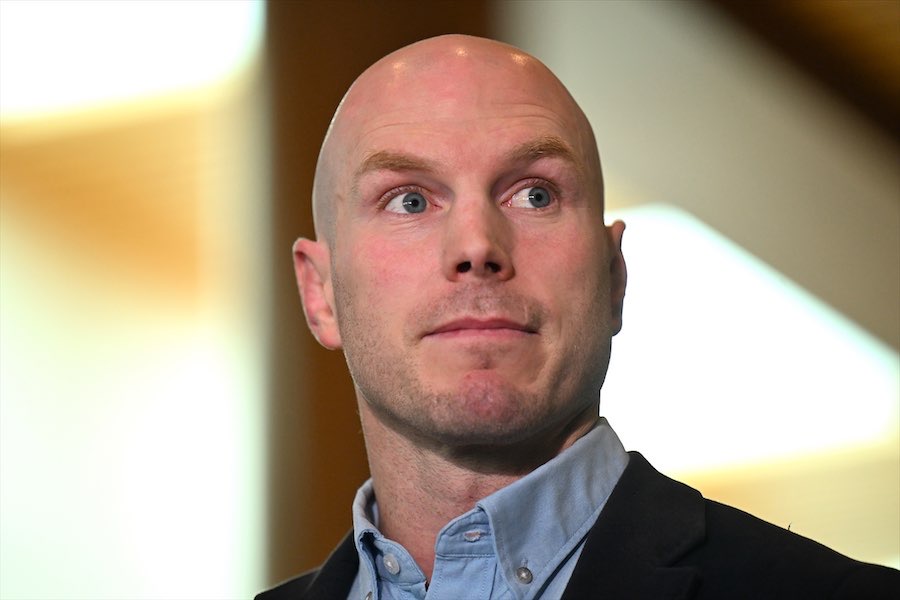“The working poor, pensioners or people in lower-income households have been abandoned by the Labor Party, ignored by the unions and are invisible to the Greens. Ironically, they now have nowhere left to turn but to Alistair Coe – and who could blame them,” writes JON STANHOPE.
AT about this time last year I wrote that the local issue that had most concerned me over the preceding year was the impact which the planning, land supply and housing policies of the ACT Labor and Greens parties has had on housing affordability.

Sadly my fears were realised. During the course of the last year Canberra became the most expensive place in Australia in which to rent a home, the median price of a detached house increased by four per cent or around $30,000 while the price of attached housing, otherwise known as flats, actually decreased by a notional 0.1 per cent, but taking into account the sales strategies of the major unit developers the decrease in the value of flats is in fact much greater than that.
The marked difference in the change in value of detached housing vis a vis flats is attributable to the decision consciously taken by Labor and the Greens to dramatically decrease the supply of land for detached housing in order, first to force the price up and increase the profit margin available to the government and secondly to force, for ideological and political reasons, people from the working class, pensioners and people otherwise from low-income households into lower-value, high-rise flats.
There can be no argument that Andrew Barr, Yvette Berry, Shane Rattenbury, Caroline Le Couteur and the rest of this neo-liberal caucus that governs us, have willingly embraced the spirit of Joe Hockey’s infamous mantra that anyone yearning to live in a detached house but who can’t afford to do so, simply needs to get a better job.
As cynical as it may seem, I fear the deafening silence from middle-class Canberra about the dire and unfair consequences of ACT government’s planning and housing policy for those of our fellow Canberrans who are not well off and, unlike us, not privileged to live in a detached house, or housing of their choice, is a result not so much of disinterest but self-interest.
As John Howard who, along with Joe Hockey, ACT Labor appears to be happily channelling, famously said, he never received a complaint from a homeowner about an increase in the price of housing.
The complaints in Canberra are not, of course, coming from people who own a house.
It is the “silent” Canberrans, those who have been locked out of either home ownership or from housing of their choice who are feeling the pain; the working poor, pensioners or people in lower-income households – those in Canberra who don’t have a voice or it seems a champion.
They have been abandoned by the Labor Party, ignored by the unions and are invisible to the Greens.
Ironically, they now have nowhere left to turn but to Alistair Coe and the Liberals – and who could blame them.
REGARDLESS of how dismally, or deliberately, Labor and the Greens have failed to respond to the affordable-housing crisis, I now believe that the state of the health system and the ACT’s increasingly parlous financial and Budget position are of even greater concern than the crisis in housing affordability.
We are surely all aware of the sense of crisis that has enveloped the Canberra Hospital in recent years. The ever worsening quarterly performance data from our public hospitals is damning.
In the latest report, for example, only 21 per cent (ie one in five) Category Three patients, who are triaged as urgent, were seen within clinically recommended times.
Of graver concern, the same report reveals that the ACT had a lower than 100 per cent outcome against the requirement for Category One patients, those requiring resuscitation, to be seen on time.
Does that mean, I wonder, that they died?
However, the public hospital performance data is only one indicator, a symptom, of the slow and inexorable meltdown in the credibility, efficacy and safety of our public hospitals.
The cause of the decline in performance is clear and unequivocal. It is quite simply a consequence of massive cuts in each of the last six years to the health budget and a decision to abandon or defer plans to provide additional beds, which has had a compounding impact on the ability of the hospitals to meet the needs of an ageing and growing population.
My colleague Dr Khalid Ahmed and I provide greater detail on these issues in an article titled: “Signs of an Unsafe Hospital System for Patients as well as Practitioners” posted to the Policy Blog at the University of Canberra. You may care to read it.
SPACE prevents me providing any detail about my other major concern, namely the state of the ACT Budget and finances.
However, if you have an idle moment and don’t have a depressive personality or scare easily, have a look at the ACT audited financial statements released just before Christmas.
Get an auditor, accountant or economist, who I generally find to be gregarious and chatty people, to explain to you the implications of the massive changes in outcomes in the ACT over the last few years, in the time (say) since the government committed to the tram, in a few of the major financial measures or indicators, such as: unfunded superannuation liability, net financial worth, net financial liability, net debt, net operating balance, revenue and expense trajectories.
It should terrify you.
Who can be trusted?
In a world of spin and confusion, there’s never been a more important time to support independent journalism in Canberra.
If you trust our work online and want to enforce the power of independent voices, I invite you to make a small contribution.
Every dollar of support is invested back into our journalism to help keep citynews.com.au strong and free.
Thank you,
Ian Meikle, editor








Leave a Reply